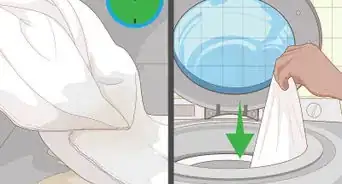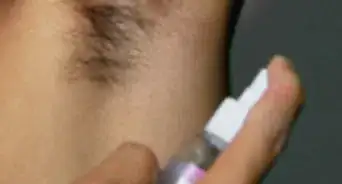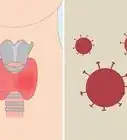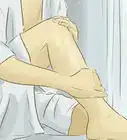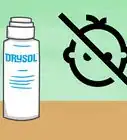This article was medically reviewed by Luba Lee, FNP-BC, MS. Luba Lee, FNP-BC is a Board-Certified Family Nurse Practitioner (FNP) and educator in Tennessee with over a decade of clinical experience. Luba has certifications in Pediatric Advanced Life Support (PALS), Emergency Medicine, Advanced Cardiac Life Support (ACLS), Team Building, and Critical Care Nursing. She received her Master of Science in Nursing (MSN) from the University of Tennessee in 2006.
There are 9 references cited in this article, which can be found at the bottom of the page.
This article has been viewed 19,174 times.
If you are embarrassed or self-conscious about sweating from your forehead, face, scalp, and neck after you eat, don’t worry! You can treat gustatory sweating by using antiperspirants, topical creams, and oral medications. Additionally, Botox injections can be an effective treatment for gustatory sweating. With one or a combination of these treatments, you should be able to get your gustatory sweating under control.
Steps
Evaluating Your Symptoms and Triggers
-
1Assess the severity of your sweating. The amount you sweat after eating can signal whether you are having a normal reaction to spicy or rich food, or whether you have a medical condition that needs treatment. For example, a small amount of sweat after eating something spicy is perfectly normal. However, if the amount of sweat you produce is drenching and dripping and it continues after the heat has dissipated, then the sweating may be connected to a medical condition.
- Make sure to see a doctor if sweating disrupts your daily routine or if it causes you emotional distress or social withdrawal. You should also see a doctor if you suddenly begin to sweat more than usual or if you experience night sweats for no apparent reason.
- The medical conditions that can cause gustatory sweating include Frey syndrome and advanced diabetes.[1]
-
2Take note of sweating around your head and a flushed face. A common symptom of gustatory sweating is profuse sweating around the forehead, cheeks, upper lip, and ears after eating spicy, salty, sour, or sweet foods. You may also experience a flushed face and profuse sweating along your hairline and at the back of your neck.[2]
- Gustatory sweating can also occur at the top of the chest, usually right on the sternum.
- The flushed areas on your face may feel warm as well.[3]
Advertisement -
3Identify trigger foods or other potential causes. There may be certain foods, eating times, or other factors that are causing you to sweat profusely. If you have noticed that you are sweating excessively during meals, you should start to keep track of what you are eating, what time you are eating, and if there are any other conditions that could cause sweating. For example, list any other illnesses you are suffering from.
- After keeping track of your episodes, you may find that there are specific foods that cause the sweating to occur. However, it is possible that your condition is more generalized and that food in general causes you to sweat excessively.
-
4See if avoiding certain foods helps. Once you have identified some foods that may be causing your sweating, try cutting them out of your diet. Changing your diet can often have a positive effect on the severity of your symptoms.
- Continue to keep track of your symptoms. This will allow you to gauge whether your dietary changes are making a positive impact.
Using Topical and Oral Medications
-
1Set up an appointment with your doctor. If your excess facial sweating disrupts your daily routine or causes social withdrawal or emotional stress, contact your doctor. Your doctor will ask you about your symptoms and medical history in order to make a diagnosis.[4]
- Your doctor may also run urine, blood, and other lab tests to determine if you have primary or secondary gustatory sweating. Primary gustatory sweating is caused by damaged nerves, while secondary gustatory sweating is caused by an underlying medical condition like diabetes.
-
2Use an over-the-counter or prescription-strength antiperspirant. Apply the antiperspirant to your clean, dry face in the morning and before you go to bed. Rub it into your skin along your hairline near your forehead, temples, ears, and neck.[5]
- Before applying the antiperspirant, test it on a small area of your skin first to ensure that no irritation occurs.
- Ask your doctor for advice about which antiperspirants work best for gustatory sweating.
-
3Try a topical face cream. There are prescription-strength topical creams that can be used to effectively control gustatory sweating. The most common is called glycopyrrolate cream. Talk to your doctor about whether this could help limit your sweating.[6]
-
4Take an oral anticholinergic medication. Oral anticholinergics, such as oxybutynin, propantheline, and benztropine, are also used to treat gustatory sweating. Anticholinergic medications are systemic medications that block the nerves that are signalling your body to sweat. Take the medication per your doctor’s instructions.[9]
- Side effects associated with anticholinergic medications include dry mouth, blurry vision, and impaired taste.
- If you are an athlete or someone who works outdoors, talk with your doctor about ways to prevent heat exhaustion, since anticholinergic medications decrease sweating.
Using Botox, Surgery, or Investigational Therapies
-
1Try Botox injections. Although they can be expensive, Botox injections are an effective way to stop gustatory sweating. This treatment is done in your dermatologist's office. They will administer the Botox by injecting it directly into the affected areas on your face.[10]
- The dose varies from person to person, but most people experience relief within a week of treatment.
- The effect of Botox injections only lasts 9 to 12 months. Because of this, you will need to go in for another treatment after 9 to 12 months.
- Most people tolerate the treatment well and experience no significant side effects.
-
2Talk to your doctor about surgery. If your gustatory sweating is caused by nerve damage, reconstructive surgery can be used to repair those nerves. Because the procedure is complex and has a lot of potential complications, finding an expert surgeon can be very difficult. However, it may be worth a try if the other therapies prove to be ineffective at stopping your gustatory sweating.[11]
-
3Try investigational therapies. Investigational therapies are treatments that are still being tested for effectiveness. You can find current information on clinical trials in the U.S. for gustatory sweating by visiting https://www.clinicaltrials.gov. The National Institute of Health (NIH) Clinical Center also conducts clinical trials on gustatory sweating.[12]
- Call the toll-free number 800-411-1222 to obtain more information about the NIH’s trials on gustatory sweating and how to participate.
References
- ↑ http://www.academia.edu/18440781/Understanding_gustatory_sweating
- ↑ https://rarediseases.org/rare-diseases/frey-syndrome/
- ↑ https://rarediseases.org/rare-diseases/frey-syndrome/
- ↑ https://www.mayoclinic.org/diseases-conditions/hyperhidrosis/symptoms-causes/syc-20367152
- ↑ https://www.sweathelp.org/hyperhidrosis-treatments/antiperspirants/not-just-for-underarms.html
- ↑ https://www.mayoclinic.org/diseases-conditions/hyperhidrosis/diagnosis-treatment/drc-20367173
- ↑ https://www.sweathelp.org/pdf/Kavanagh_topical_glyco.pdf
- ↑ https://www.ncbi.nlm.nih.gov/pubmed/8737034
- ↑ https://www.sweathelp.org/hyperhidrosis-treatments/medications.html
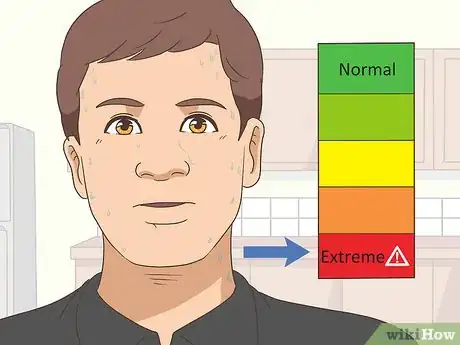
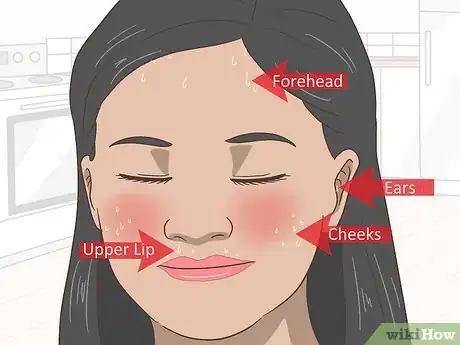
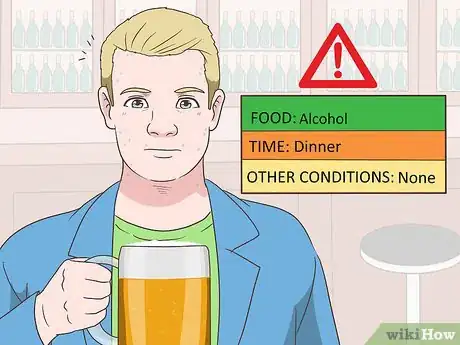

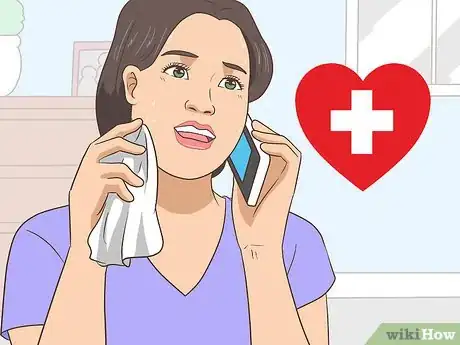
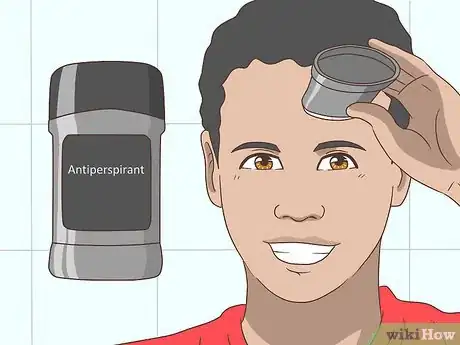
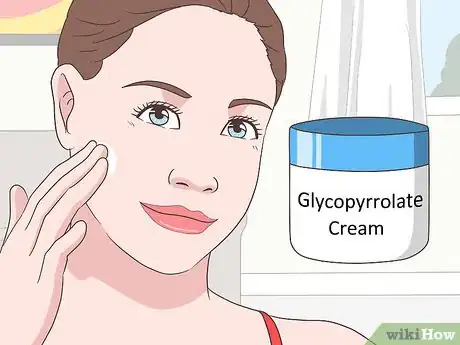
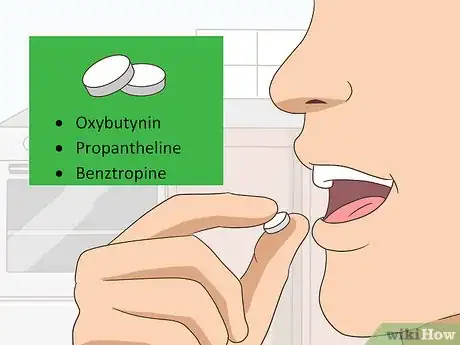
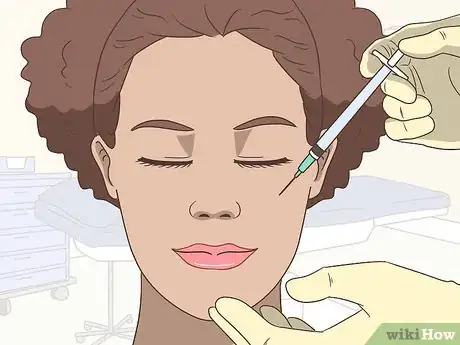
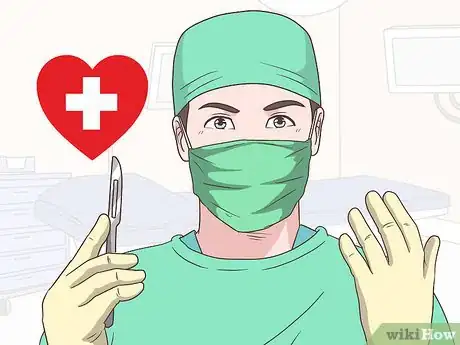
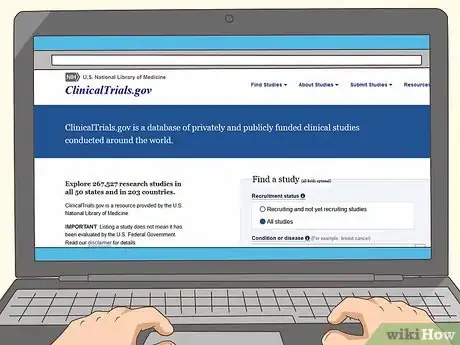
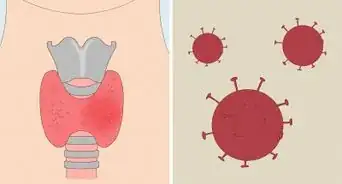
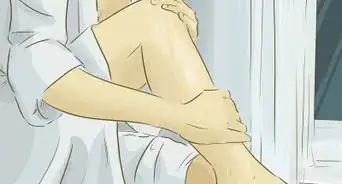
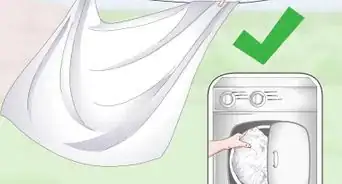
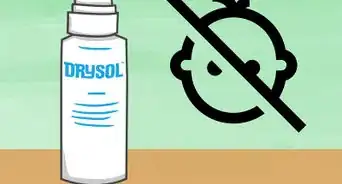
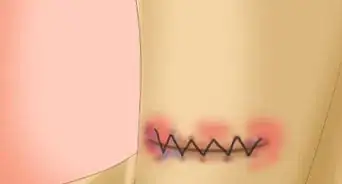


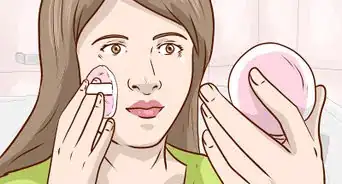

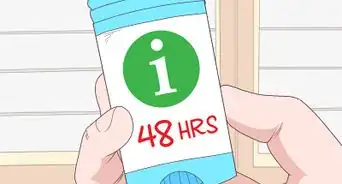
-Step-23-Version-3.webp)
